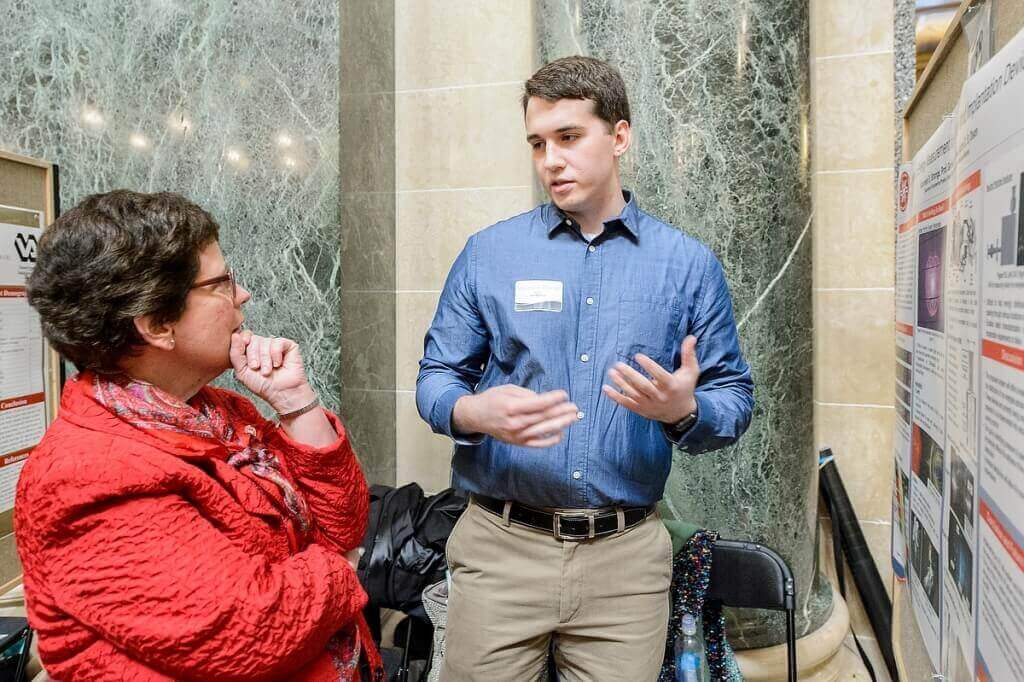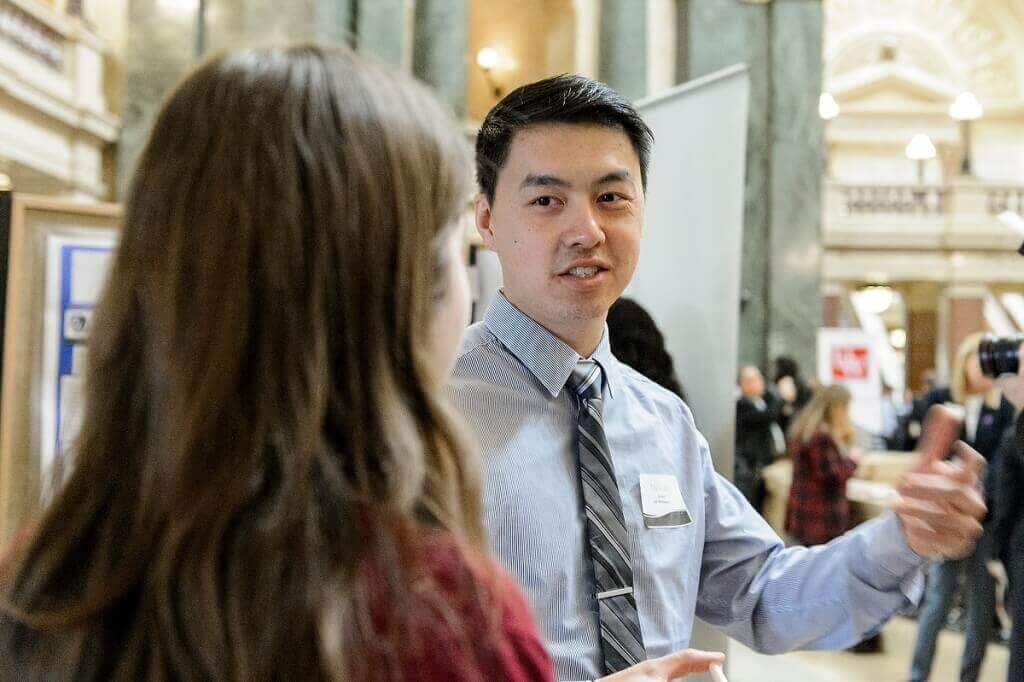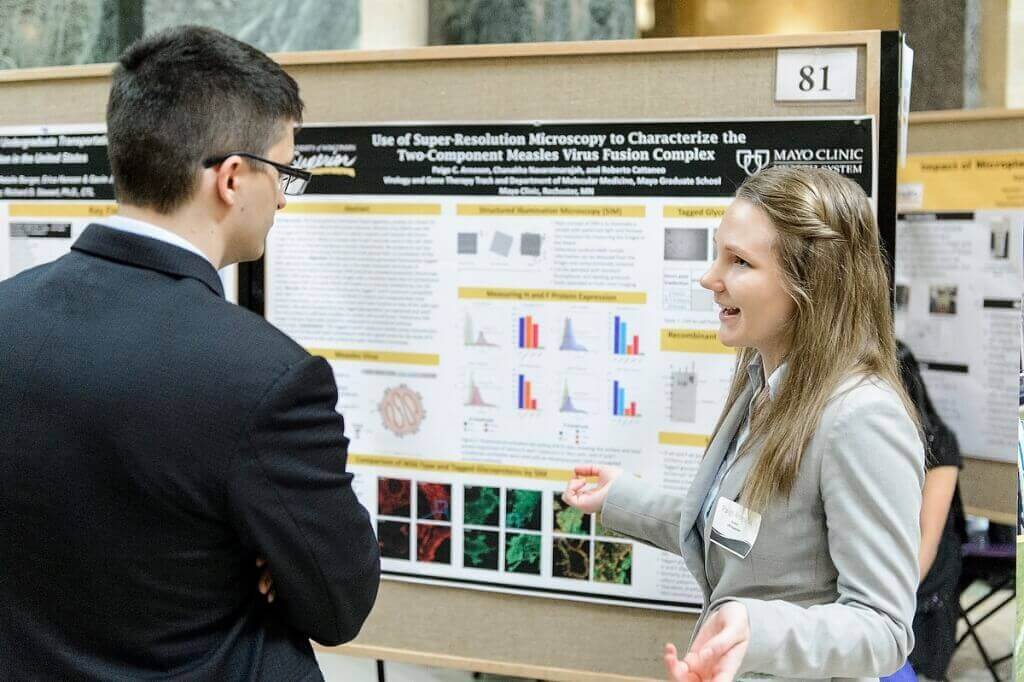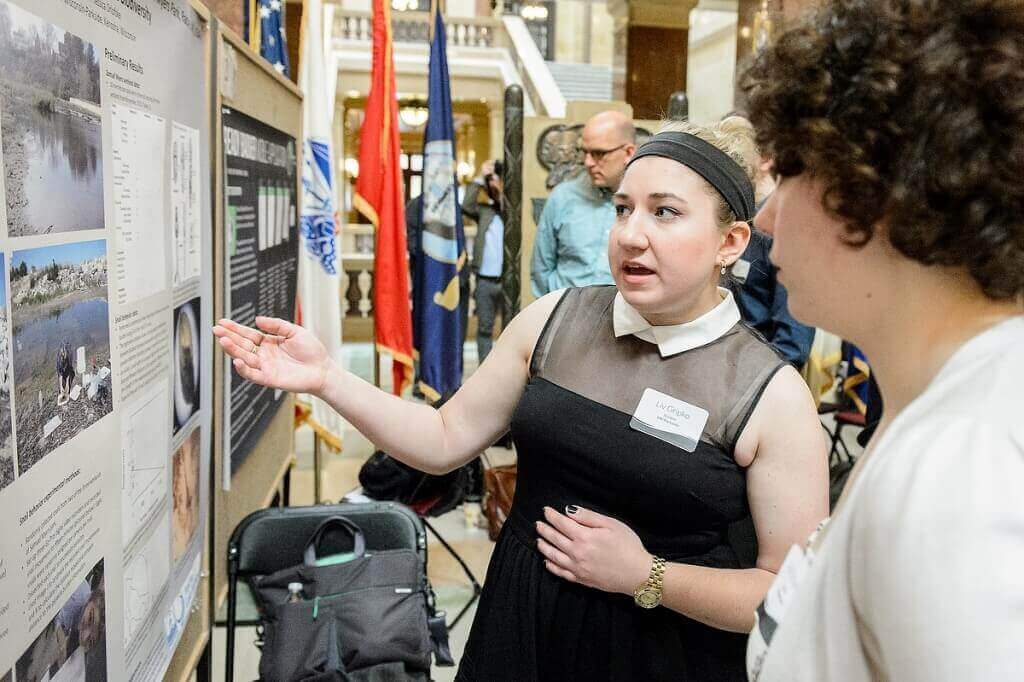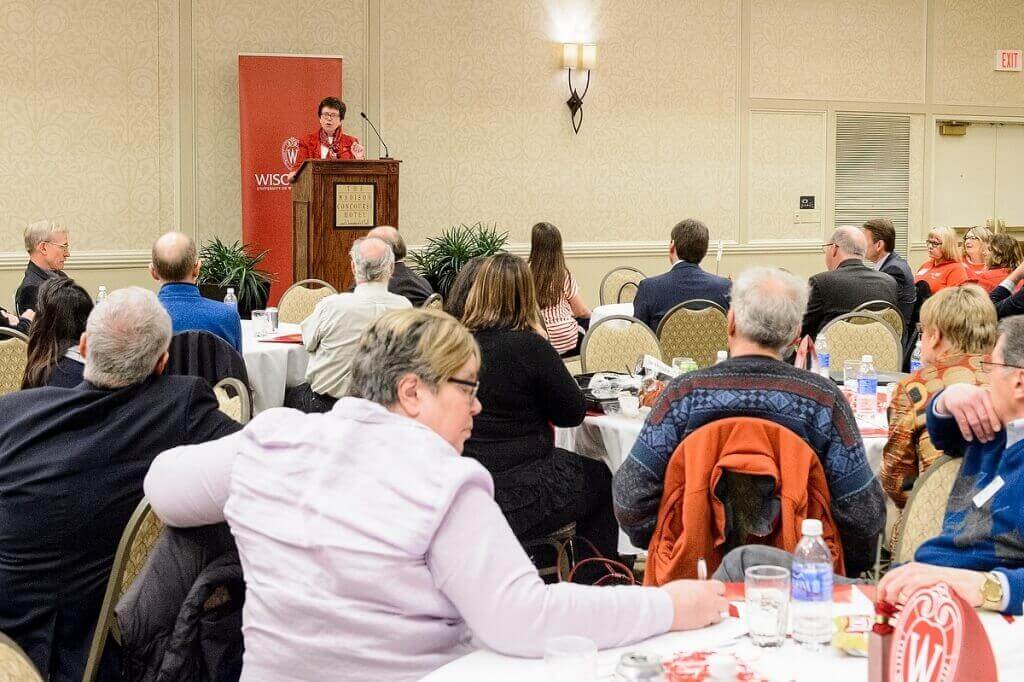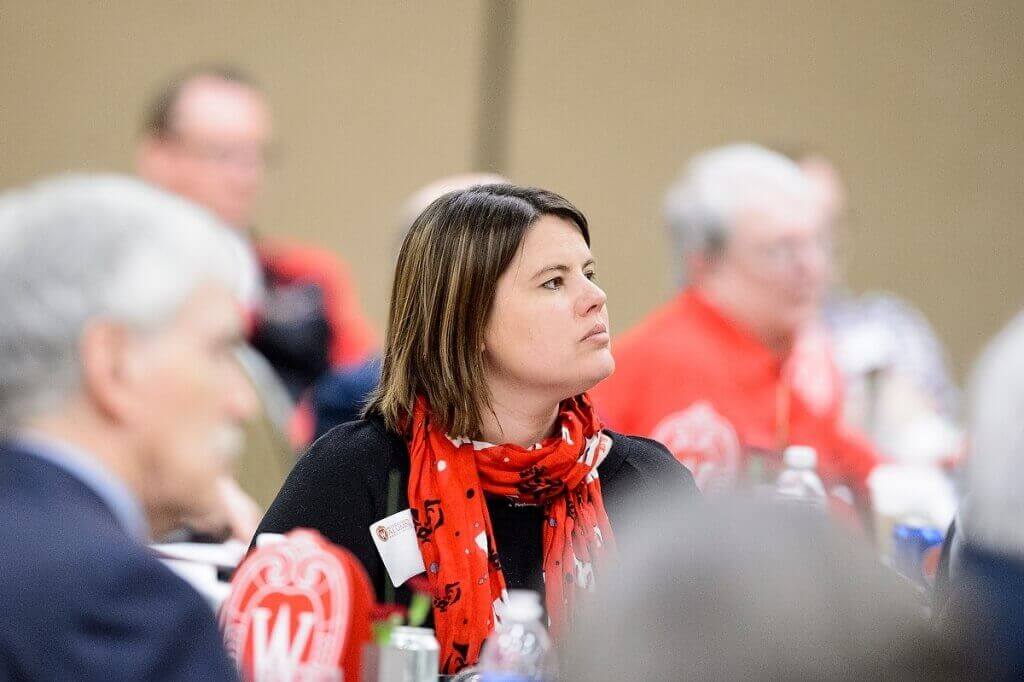UW Day at the Capitol, Posters in the Rotunda celebrated
It was the ultimate opportunity to show and tell Wednesday as 140 UW students and nearly 90 faculty mentors highlighted their research at the 13th annual Posters in the Rotunda at the State Capitol.
Undergraduates from the UW System’s 26 campuses shared the findings of their diverse research, often involving multiple years of study and collaboration with faculty mentors and community partners throughout the state.
While the subjects varied, all had one theme in common: How can research improve the world?
Alexander Strange, a junior at UW–Madison from Sussex, presented a poster on “Helium Ion Energy Measurement for a Solar Wind Implantation Device.” He’s researching the possibility of mining helium-3 from the moon, which could help lead to clean nuclear energy without nuclear waste.
“The main goal is clean nuclear energy,” Strange said. “We could be 20 to 30 years off but there’s the potential. It’s the epitome of clean energy.”
Sometimes the best research starts by not knowing something. Nyia Lor, a senior at UW-Whitewater studying computer science, had been told by his mother for years that he should teach his two children how to speak Hmong.
“I told her I had to teach myself first,” Lor said.
Lor’s poster, “Interactive Web-based Hmong Language Teaching Tool: Hmong Language,” demonstrated how a computer program could not only help people learn Hmong but also how it could help people who primarily speak Hmong learn English. Instead of waiting for an interpreter at the hospital, a computer could help translate and communicate.
As for Lor, his fluency has already improved. He might say, “Good morning,” or he might say, “Nyob zoo,” the Hmong equivalent.
“I want to keep the language alive for my children,” Lor said. “It’s an important part of our history.”
Liv Gripko of Kenosha grew up appreciating nature. That appreciation has only grown for the UW-Parkside junior, thanks in part to her research on “Ecological Restoration Progression of a Coastal Wetland Ecosystem Based on Invertebrate Biodiversity.” She studied wetlands and snails at Myers Park in Racine.
“This has really confirmed that I’m on the right path and made me more confident,” Gripko said. “Our world is going downhill in terms of conservation, but it’s important to preserve and restore nature.”
Paige Arneson, a senior at UW-Superior from Spring Valley, Minnesota, studying biology and chemistry, presented a poster on “Use of Super Resolution Microscopy to Characterize the Two Component Measures Virus Fusion Complex.” Simply put: She’s studying how measles could help treat cancer someday. She did research over the summer at the Mayo Clinic in Rochester, Minnesota.
“This is definitely on the brink of something that can be used to help patients,” Arneson said. “I think it’s the next big thing in cancer treatment.”
While the research isn’t there yet, she’s excited to think about the possibilities, especially since her uncle was diagnosed with cancer last year.
“It makes it feel that much more necessary,” Arneson said.
Ryan Kizer of Marshfield, a sophomore at UW-Marshfield/Wood County, presented “Water Pollution and Regulation in Wisconsin.”
“The main reason I chose water pollution is because it kind of falls under the radar,” Kizer said. “People really take it for granted.”
While the water crisis in Flint, Michigan, has brought the issue to the forefront, Kizer said it’s important for us to take a look at our own water in Wisconsin.
“If we don’t acknowledge and pay attention, it’s going to get worse,” Kizer said.
In addition to Posters in the Rotunda, UW Day at the Capitol was celebrated, bringing together nearly 100 alumni, students and faculty members. All were encouraged to tell their own stories of how the UW System has made a difference in their lives and to share those stories with legislators.
“We cannot take for granted that our leaders understand or appreciate the value of this great university to the state of Wisconsin,” Chancellor Rebecca Blank said. “We need your voices to help tell our story and to tell it more often, in more places and to more people than we have in the past. This is a moment when all of you — our most effective ambassadors — can make a real difference.”
Allison Millis graduated from UW–Madison in 1999 with an accounting degree. She now works as an associate budget planner at UW-Eau Claire but decided she needed to return to her alma mater for the event.
“The research this university does for the state on things like improving health care, disease prevention and creating jobs is amazing,” Millis said. “Every time I come back here, I’m energized. I think it’s important to be here and be an advocate.”

